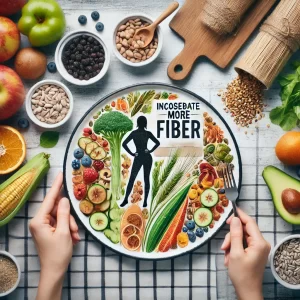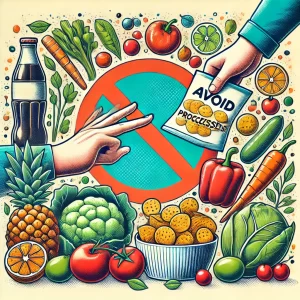How to Lose Weight with the Dukan Diet: A Step-by-Step Guide for Beginners
Introduction to the Dukan Diet
The Dukan Diet is a high-protein, low-carb weight loss plan that was developed by French nutritionist Dr. Pierre Dukan. Known for its emphasis on protein and its structured phases, the Dukan Diet has gained popularity around the world for helping people lose weight quickly and keep it off. The  diet is divided into four distinct phases, each with its own set of guidelines and food restrictions, making it a structured and effective plan for those looking to shed pounds.
diet is divided into four distinct phases, each with its own set of guidelines and food restrictions, making it a structured and effective plan for those looking to shed pounds.
The Dukan Diet focuses on protein as the main macronutrient because it is known to promote satiety, preserve muscle mass, and increase calorie expenditure through digestion. By reducing carbohydrates and fats, the diet aims to create a calorie deficit, forcing the body to burn fat for fuel. In this guide, we’ll explore how the Dukan Diet works, its benefits, and how to follow the Dukan diet phase 1 food list.
How the Dukan Diet Works for Weight Loss
The Dukan Diet is designed to help people lose weight by emphasizing lean protein, minimizing carbohydrates and fats, and promoting healthy eating habits over the long term. The diet is broken down into four phases: Attack, Cruise, Consolidation, and Stabilization. Each phase has its own rules and goals to help guide you through the weight loss journey.
The Four Phases of the Dukan Diet
- Phase 1: Attack Phase – The Attack phase is the initial stage of the Dukan Diet and is designed to kickstart weight loss. During this phase, you’ll eat only lean protein, such as chicken, turkey, fish, and eggs. This phase lasts between 2 to 7 days, depending on your weight loss goals, and can result in a rapid initial weight loss of up to 5 pounds.
- Phase 2: Cruise Phase – In the Cruise phase, vegetables are introduced back into your diet, but carbohydrates and fats remain restricted. You’ll alternate between protein-only days and days where you eat both protein and non-starchy vegetables. This phase lasts until you reach your goal weight and typically results in a steady weight loss of about 1-2 pounds per week.
- Phase 3: Consolidation Phase – The Consolidation phase is designed to help prevent rebound weight gain. During this phase, you’ll gradually reintroduce certain foods, including fruits, whole grains, and cheese. However, one day per week must remain a protein-only day. This phase lasts for 5 days for every pound lost during the Cruise phase.
- Phase 4: Stabilization Phase – The Stabilization phase is the final phase of the Dukan Diet and is meant to maintain your weight for life. During this
 phase, you can eat whatever you want, but you must follow three key rules: one protein-only day per week, daily consumption of oat bran, and regular exercise.
phase, you can eat whatever you want, but you must follow three key rules: one protein-only day per week, daily consumption of oat bran, and regular exercise.
Benefits of the Dukan Diet for Weight Loss and Health
The Dukan Diet offers several benefits for weight loss and overall health. Here are some of the key advantages:
1. Rapid Initial Weight Loss
The Attack phase of the Dukan Diet is designed to produce rapid weight loss by significantly reducing carbohydrates and focusing on lean protein. Many people report losing up to 5 pounds in the first week, which can provide the motivation to continue with the diet.
2. High Protein for Satiety and Muscle Preservation
The Dukan Diet emphasizes protein, which is known to promote satiety and reduce hunger. Protein also helps preserve muscle mass during weight loss, which is important for maintaining a healthy metabolism and preventing muscle loss.
3. Structured Phases for Long-Term Success
The four phases of the Dukan Diet provide a clear roadmap for weight loss and weight maintenance. The diet’s structure helps individuals stay on track and avoid the common pitfall of regaining lost weight after reaching their goal.
4. No Calorie Counting
Unlike many other diets, the Dukan Diet does not require calorie counting or portion control. Instead, it focuses on specific food groups and phases, making it easier to follow without the need for constant tracking.
Potential Drawbacks of the Dukan Diet
While the Dukan Diet offers many benefits, there are some potential drawbacks to consider:
1. Restrictive Eating Plan
The Dukan Diet is highly restrictive, particularly during the Attack and Cruise phases. This can make it difficult to stick to the diet, especially for individuals who enjoy a wide variety of foods, including carbohydrates and fats.  The limited food choices may also lead to boredom or nutrient deficiencies if followed for an extended period.
The limited food choices may also lead to boredom or nutrient deficiencies if followed for an extended period.
2. Risk of Nutrient Deficiencies
Because the diet eliminates many food groups, particularly in the early phases, there is a risk of nutrient deficiencies, especially in fiber, vitamins, and minerals. It’s important to ensure that you are getting enough nutrients through the allowed foods or by taking supplements as needed.
3. Lack of Scientific Support
While the Dukan Diet has been popular for many years, there is limited scientific evidence to support its long-term effectiveness and safety. Some health professionals are concerned about the impact of the diet’s high protein content on kidney health, particularly for individuals with pre-existing kidney conditions.
Tips for Success on the Dukan Diet
To maximize your success on the Dukan Diet and achieve your weight loss goals, follow these practical tips:
1. Stick to the Allowed Foods
During each phase of the Dukan Diet, it’s important to stick to the allowed foods and avoid any foods that are not permitted. This will help you stay on track and achieve the desired weight loss results. Make sure to familiarize yourself with the Dukan diet phase 1 food list and plan your meals accordingly.
2. Stay Hydrated
Drinking enough water is essential for overall health, especially during the high-protein phases of the Dukan Diet. Water helps support digestion, reduce hunger, and prevent dehydration. Aim to drink at least 8 glasses of water per day while on the diet.
3. Incorporate Oat Bran
Oat bran is a key component of the Dukan Diet, particularly in the Stabilization phase. It provides fiber, which helps promote satiety and supports digestive health. Make sure to include oat bran in your daily meals as recommended by the diet guidelines.
4. Exercise Regularly
Regular physical activity is an important part of the Dukan Diet, particularly during the Stabilization phase. Incorporating at least 30 minutes of exercise per day can help support weight loss, improve overall health, and maintain your results over the long term.
5. Be Patient with the Process
Weight loss on the Dukan Diet may be rapid in the initial phases, but it’s important to be patient and stick with the plan through all four phases. The long-term success of the diet depends on following the guidelines carefully and transitioning to the Stabilization phase to maintain your weight loss.
Scientific Evidence and Case Studies
There is limited scientific evidence specifically on the Dukan Diet, but studies on high-protein, low-carb diets have shown that they can be effective for weight loss. A study published in the American Journal of Clinical Nutrition found that high-protein diets help promote satiety, reduce appetite, and support fat loss while preserving lean muscle mass.
However, some experts caution that the long-term safety of high-protein diets, like the Dukan Diet, has not been well-established. It’s important to consult with a healthcare provider before starting the diet, especially if you have any underlying health conditions.
Who Should Try the Dukan Diet?
The Dukan Diet is a good option for individuals who:
- Prefer a structured, phase-based approach to weight loss.
- Are looking for rapid initial weight loss and long-term maintenance.
- Enjoy eating high-protein foods and are willing to limit carbohydrates and fats.
- Have struggled with traditional calorie-counting diets and want a simpler plan to follow.
Who Should Avoid the Dukan Diet?
The Dukan Diet may not be suitable for everyone. You should avoid the diet if you:
- Have a history of kidney problems or other health conditions that could be aggravated by a high-protein diet.
- Prefer a more flexible, balanced approach to dieting that includes carbohydrates and healthy fats.
- Are looking for a diet that is supported by a strong body of scientific research.
Conclusion
The Dukan Diet is a high-protein, low-carb diet that promotes rapid weight loss through its structured phases. By following the Dukan diet phase 1 food list and transitioning through the different phases, you can achieve significant weight loss and maintain your results over the long term. While the diet offers several benefits, including rapid weight loss and high-protein satiety, it’s important to be aware of the potential drawbacks, such as nutrient deficiencies and the restrictive nature of the plan. As with any diet, it’s a good idea to consult with a healthcare provider before starting the Dukan Diet to ensure it’s the right choice for your health and weight loss goals.